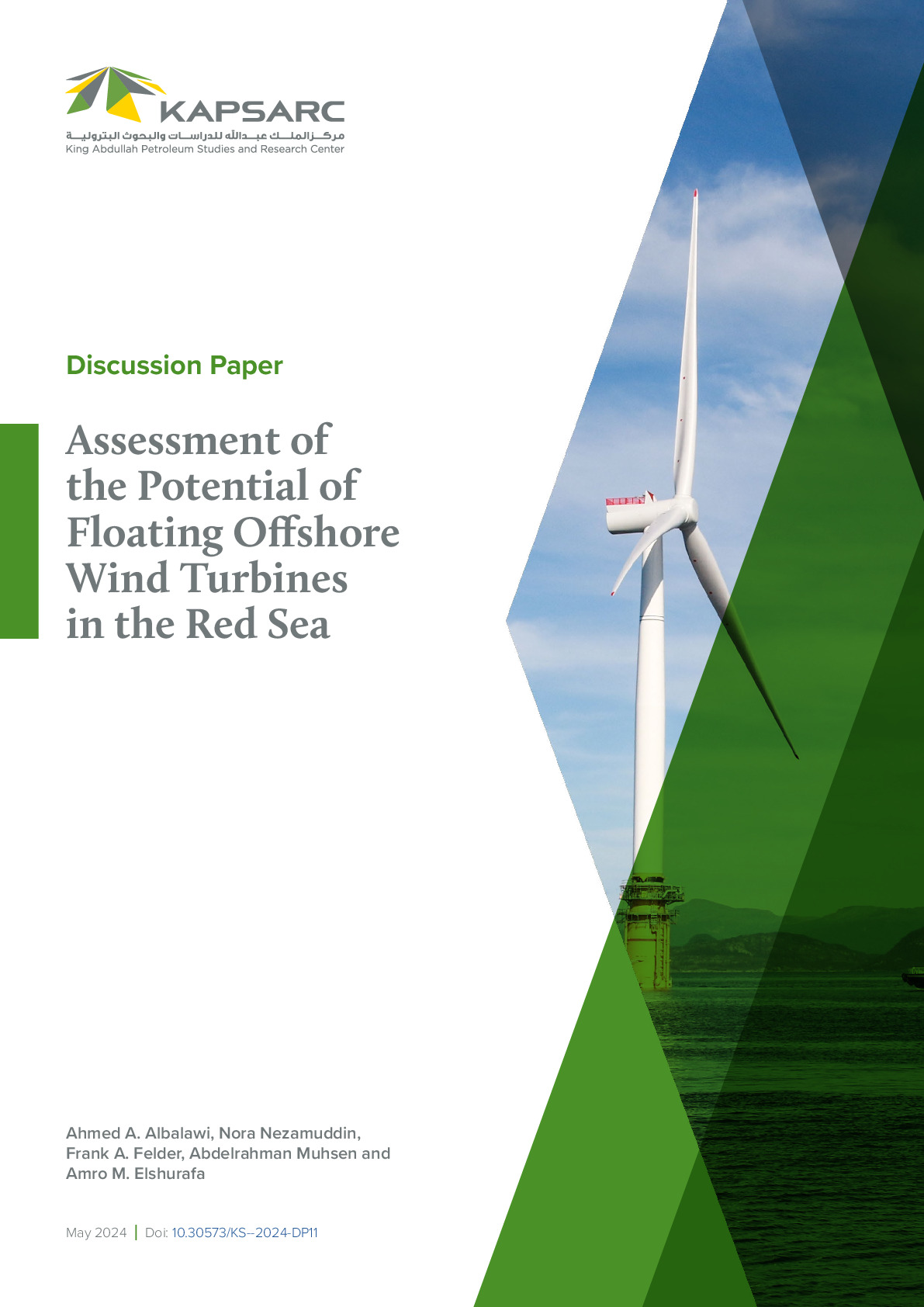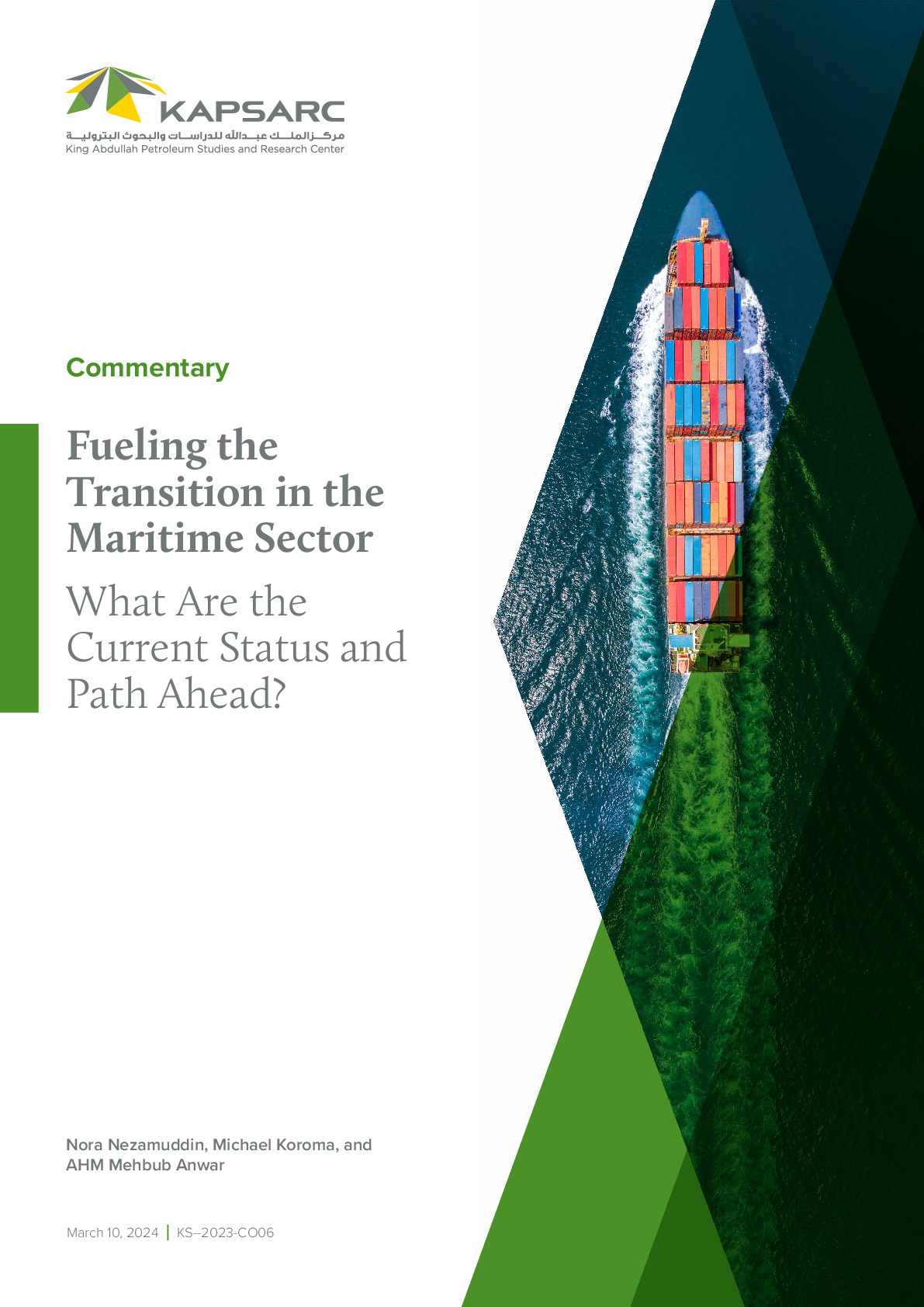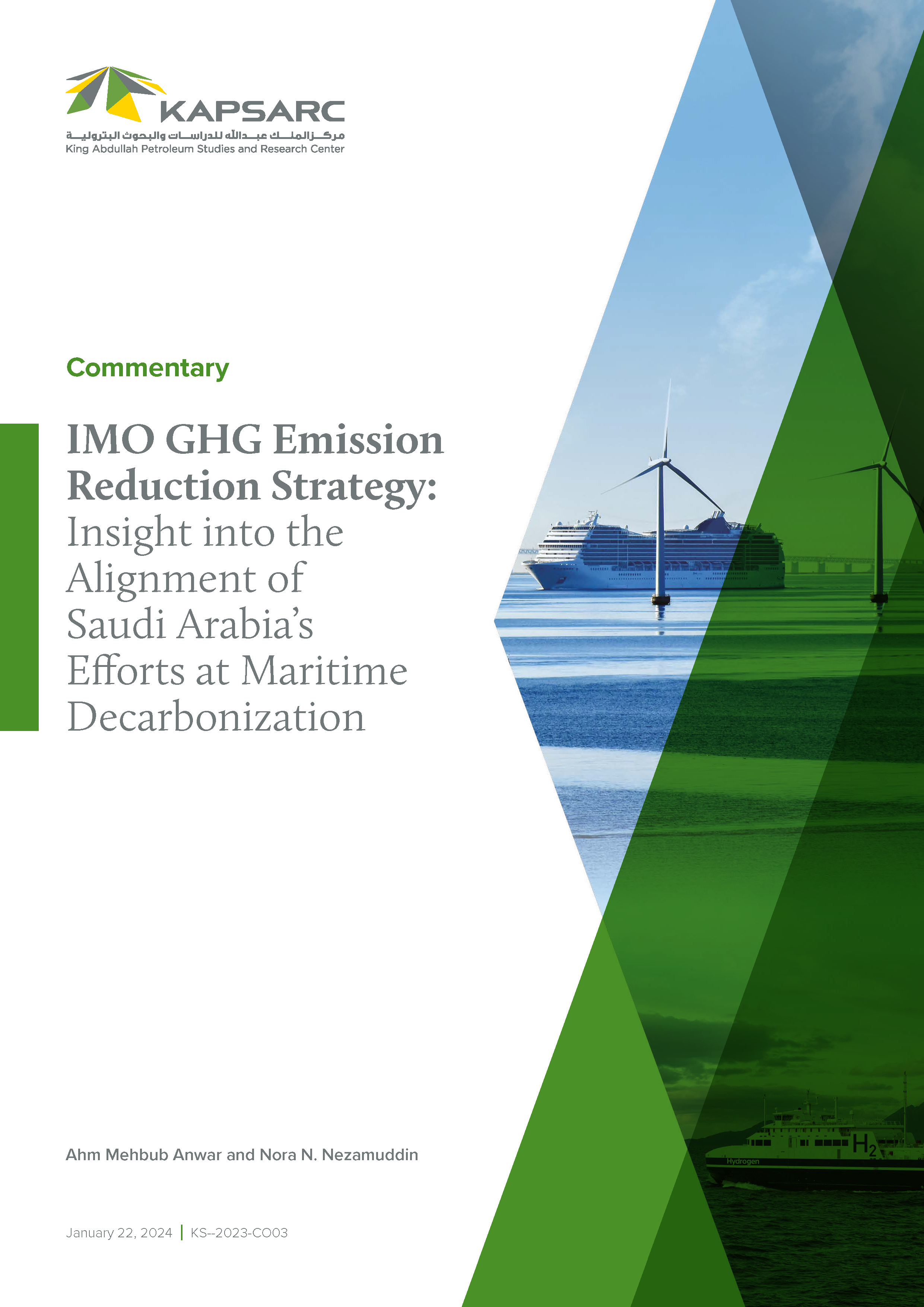The continued demand for global seaborne trade is estimated to have accounted for 85.9% of world trade in 2023, with demand reaching 12 billion tons. As with the growth in demand, the continued growth in CO₂ emissions from global shipping, which currently contributes an estimated 2.19%, equivalent to 837.7 million tons (mt) of the total CO₂ emission output and an estimated 3% of worldwide greenhouse gas (GHG) emissions, has led to a push toward increased measures to limit emissions since the sector is projected to contribute approximately 10%-13% of global GHG emissions in the future if no action is taken to decarbonize the sector.

Fellow I
Nora is a fellow at KAPSARC specializing in transport economics research and energy consumption in the transport sector. Her areas…
Nora is a fellow at KAPSARC specializing in transport economics research and energy consumption in the transport sector. Her areas of interest include energy and transport economics, policy analysis, energy transitions, and sustainable transport. She holds an M.Sc. in Maritime and Air Transport Management, focusing on maritime transport economics research, from the University of Antwerp in Belgium and a B.S.B.A. in Business Administration and International Relations from The American University in Washington D.C.
Expertise
- Energy Economics
- Policy Analysis
- Sustainable Transport
- Energy Transitions
- Energy in Transport and Freight Transport
Publications See all Nora Nezamuddin’s publications

Assessment of the Potential of Floating Offshore Wind Turbines in the Red Sea
The continued demand for global seaborne trade is estimated to have accounted for 85.9% of…
5th May 2024
Fueling the Transition in the Maritime Sector: What Are the Current Status and Path Ahead?
The continued demand for global seaborne trade is estimated to have accounted for 85.9% of…
10th March 2024


